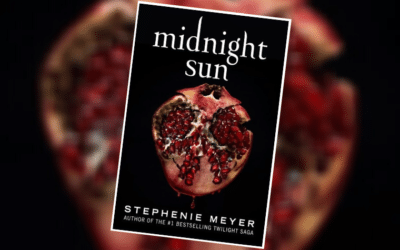Would you rather go back in time and meet your great-great-great grandfather or go into the future and meet your great-great-great grandchildren?
I recently attended a small dinner party, and the host had asked us that question, as a conversation starter. I didn’t have to ponder my answer for even a second; my reply was knee-jerk. I’ll go back in time, every time. History is the devil we know. The future is the devil we don’t, and the unknown fills me with dread. Things get better until they don’t.

The future as dystopia is drilled into our literature and pop culture. Two of my favorite books — Cormac McCarthy’s The Road and David Mitchell’s Cloud Atlas — deal with “what’s ahead” and it’s not bucolic. In The Book of Strange New Things, Michel Faber creates a science fiction world, way out there in outer space. The protagonist is Peter Leigh, a London pastor selected by the USIC to travel to the planet of Oasis, ministering to its indigenous people. We are not sure of what the USIC is doing at its Oasan base; we aren’t even sure of what USIC stands for.
The characters Faber creates are competent. They are competent engineers. Competent chemists. Competent nurses. USIC employees don’t long for home. They long for doing good work and approach their business with good humor. Yes, they call the native Oasan settlement “Freaktown” but not with any real worry. As Peter makes proselytizing inroads, the USIC reaction is pretty much a shrug. Way to be a competent ambassador for Jesus, Peter.
The native Oasans — the freaks — are guileless and longing to hear more from the King James Bible – this Book of Strange New Things. They live simply on their sandy and wet planet. Peter names the individuals of his flock numerically — “Jesus Lover Number One” or “Jesus Lover Number Five” — only able to tell them apart by the color of their robes and gloves. To Peter, the face of every Oasan looks like two human fetuses, facing each other in a kiss. Do they have eyes? Do they have mouths? It’s unclear, but Peter seems unsure how to ask. It makes him long for his wife who always knows the right questions to pose at the appropriate time.

Peter is a married missionary with a wife, finding himself across the expanse of space without her. His Beatrice — his Bea — is left behind back in London. This book is about struggle. It is about the struggle of distance, when you are far away from the one person who understands you. It is about the struggle of proximity, trying to find inroads with a people quite foreign to you but physically near you. And I’m talking about both the Oasans and the human USIC employees.
And this book is about the struggle of the unknown. Why has civilization started to break down on Earth? What does Oasis — a new place, new planet — do to visitors from Earth? How do we deal with the unknown, as small and helpless beings in the universe, subject to the whims of our own faith and God?
I’m a non-believer, but I never judged Peter for what he did as a Christian. I judged him for being an obtuse man in the pressures of a relationship. Always trying to fix something, not really listening. Peter is Christian, but he’s painfully human.

I love this book, and I love it in a way that makes me scared to tell you. Have you ever loved a book so much that you feel any rejection of it is a rejection of you? When a book affects me like this, I try to figure out why, and for The Book of Strange New Things, I think it’s really about atmosphere. Faber’s prose is quiet, like the air conditioned, homogeneous hallways of the USIC base. And the actual atmosphere of planet Oasis is described as being humid and swirling air. It gets under your clothes and hair and covers you in minutes. For some USIC employees, the atmosphere is a misery they combat with extreme climate control. Peter accepted it and began to love the planet’s breath. As a reader, I could imagine it as if it were licking my own skin.
Tell us about the best book you have a read in a long while.




